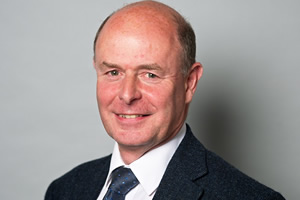Death of religious broadcasting greatly exaggerated
Remember when bishops used to berate broadcasters for the reduction in religious programming? In the past month, there’s hardly been a shortage of people discussing their faith on the airwaves, or other programmes reflecting themes of religion and ethics.
On Radio 4’s Today programme, the Archbishop of Canterbury Justin Welby endorsed Time Magazine’s choice of the Pope as Person of the Year. He also insisted that despite falling congregations he was “extremely hopeful” about the Church of England and said good vicars could boost attendances. A few days later, he delivered his first New Year Message on television and via social media.
Dr Rowan Williams gave his Thought for the Day in the form of a poem and the distinguished theologian, the Rev Prof Richard Burridge, Dean of King’s College London, analysed Monty Python’s Life of Brian, describing it as a remarkable tribute to the life of Jesus.
On BBC One, the BBC’s World Affairs Editor John Simpson and comedian Ken Dodd discussed their faith in ‘Fern Britton Meets…,’ while Lord Justice Woolf and the novelist Ian McEwan discussed theirs on BBC Radio 3, in ‘Belief’ with Joan Bakewell.
Then there were all the Christmas programmes. As well as ‘Carols from King’s’ and the traditional services, there was ‘The Choir Christmas Final’ from Ely Cathedral, histories of carols on Radio 2 and Radio 4, and series such as ‘Pilgrimages’ with Simon Reeve, ‘Byzantium’ with Simon Sebag Montefiore, and ‘Sacred Wonders of Britain’ with Neil Oliver.
But it’s not only at Christmas that you’ll find stimulating programmes to do with religion. Last autumn also saw Simon Schama’s ‘The Story of the Jews’, Rageh Omaar’s ‘The Ottomans: Europe’s Muslim Empire’, ‘Cathedrals’, ‘The Bible’ and ‘Requiem’, not to mention the ‘Daily Service’, Radio 4’s ‘Sunday’, Clare Balding’s ‘Good Morning Sunday’ on Radio 2 and BBC One’s ‘Songs of Praise’.
Like reports of the death of Mark Twain, the decline in religious broadcasting has been exaggerated. There may be fewer hours specifically classified as ‘religion/ethics’ – notably on ITV – as Ofcom pointed out in its latest Public Service Broadcasting Annual Report. But that doesn’t include all the programmes to do with religion, and the hours on BBC Two and Channel 5 actually grew. Not to mention all the new faith-based TV and radio channels, or the new online offerings.
I suspect that many people in ‘the faith industry’ simply aren’t aware of the range of programmes on offer, while many in broadcasting have little personal knowledge of people and issues of faith.
I recently joined the Sandford St Martin Trust, which runs the most prestigious awards for religious broadcasting, presented each year at Lambeth Palace. The awards, now in their 36th year, are open to all faiths and are highly valued (and not just because they carry cash prizes.) Entries for 2014 close on February 21st.
In recent years, those whose work has been honoured include the former Chief Rabbi Lord Sachs, David Suchet, Rowan Williams, Melvyn Bragg, Ian Hislop, Rageh Omaar, Howard Jacobson, Sir Mark Tully, Simon Schama and Anna Magnusson.
TV programmes recognised have ranged from drama series such as ‘The Nativity’ and the sitcom ‘Rev’ to the documentary series ‘The Life of Muhammad’ and ‘A History of Christianity’. Radio winners have included ‘King James Bible Readings’, ‘Resurrection Stories’ and ‘Faith and 9/11’.
In 2014 the TV judging panel will be chaired by broadcaster Edward Stourton and the radio panel by author Patrick Gale. There’s also an award for the best local/community or online entry and a separate award is voted for by Radio Times readers.
So don’t let anyone tell you that religious broadcasting is in decline. It’s alive and well and being celebrated by the Sandford St Martin Trust.
[This post first appeared in the January 2014 edition of Broadcast Now]





Leave a Reply
Want to join the discussion?Feel free to contribute!